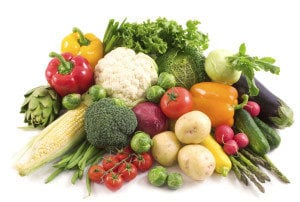Supplements
Here at Summit Chiropractic, we offer various natural supplements that can help provide relief for patients suffering from inflamed joints, muscle spasms, vitamin deficiencies, weight loss and more.
Nutrition

Are you eating superior raw whole food nutrition for 5-6 meals a day and getting all your amino acids, vitamins and minerals for the whole day? Do you eat a wide array of fresh fruits and vegetables? Do you get enough protein in your diet to build healthy cell? If you can’t answer yes to those questions it may be time to look at supplementation. Getting the right nutrients in your body in the proportions you need is essential to weight loss, weight gain or general healthy living and maintenance. Let’s face it; we live in a busy society where we don’t have enough time or energy to prepare the perfect meal 5-6 times a day. Coupled with our busy lives we may not make the most clean food choices when we do eat. Even if you are eating clean, did you know that by the time an organic fruit or vegetable is picked from the farm that it loses its nutrient value by 50% within the first 48 hours? Using USDA data, broccoli in 1950 was shown to have 130mg of calcium and today only 48mg. Other factors such as the way we prepare our food or cook it plays a large role in the final nutrition count that actually reaches our cells.
Why Whey Protein Out-performs a Chicken Breast
“We’re all human, made up of trillions of cells. Suck the water out of a lean athlete and you are left with mostly protein. More than half the dry weight of your body is protein, over 100,000 different proteins, each precisely constructed from gene expression. The structure of your brain cells, your organs, and your muscles is pure protein. Even the hemoglobin that carries the oxygen in your blood is protein. The creation of a thought, the blink of an eye, the contraction of a muscle, every move you make, is controlled by thousands of different enzymes – and all enzymes are proteins, every one.
Body proteins are temporary. Each is being constantly rebuilt. Some enzymes last only minutes. Your skin is replaced every few weeks. Your blood cells are replaced every three months. Most of your muscle cells are replaced every six months. Yet, unlike carbohydrates and fats, your body has no store for protein. Body structure is rebuilt day-by-day, mainly from the proteins you eat, and from recycled amino acids from broken down body structures.
To grow an optimum body you need to eat the right proteins every day. If you eat garbage proteins you will grow a garbage body, no matter how hard you train. If you eat garbage proteins you will grow a pro-inflammatory body. Any day you eat garbage proteins they build into the structure of your body and you have to operate with them for up to the next six months. With garbage proteins, you cannot construct the champion whose blueprints are residing in your genes.”~ Dr. Colgan- Colgan institute
Protein Facts
So let’s talk about the right kinds of proteins. Let’s talk about “real food” and the bioavailability of it! Take a chicken breast; it yields 30 grams of protein. Once cooked, eaten and digested, the body can only utilize about 13 grams of it, the rest is waste. Same thing with beef and fish- around 40% utilized. Eggs are a bit higher. Whey protein concentrate is about 90% utilized, 10% waste. So if you consume a shake that yields 35 grams of protein, after you eat and digest it, you’re utilizing about 32 grams of it.
Let’s talk about Branch chain amino acids are the other amino acids within animal proteins. What’s the quantity of the BCAA’s in the raw meat and what happens once you cook the meat? What’s the quality of proteins once you cook your meat? We are all going to be eating whole food but supplementation with high quality whey protein, coupled with modified fast days will build a lean healthy body for life. Supplement drinks high in antioxidents and adaptogenic herbs will also assist in bringing stress down in the body.
Protein Needs of Athletes
Exercise stresses many of the metabolic pathways where micronutrients are required; therefore the greater stress placed on the body the greater the demand for nutrients. As a result, greater intakes of micronutrients may be required to cover increased needs for building, repair, and maintenance of lean body mass in athletes. An alkaline diet is also essential for an athlete as they have a big need to bring inflammation down in the body quickly. An alkaline diet can be achieved from eating food that comes from the earth and grows from the ground. Athletes that restrict their energy intake are at a far greater risk of depletion of nutrients. The most common vitamins and minerals found to be of concern in athletes’ diets are:
- Calcium and Vitamin D
- B vitamins (some data suggest that exercise increases the need for B vitamins as much as twice the current recommended amount) B-12 is especially important
- Iron
- Zinc
- Magnesium
- Antioxidants (can help suppress damage from oxidative stress caused by exercise)
- Sodium, Chloride and Potassium (electrolytes) these ingredients are found in energy drinks such as Gatorade. Activities lasting over 90 min will require electrolyte replacement.